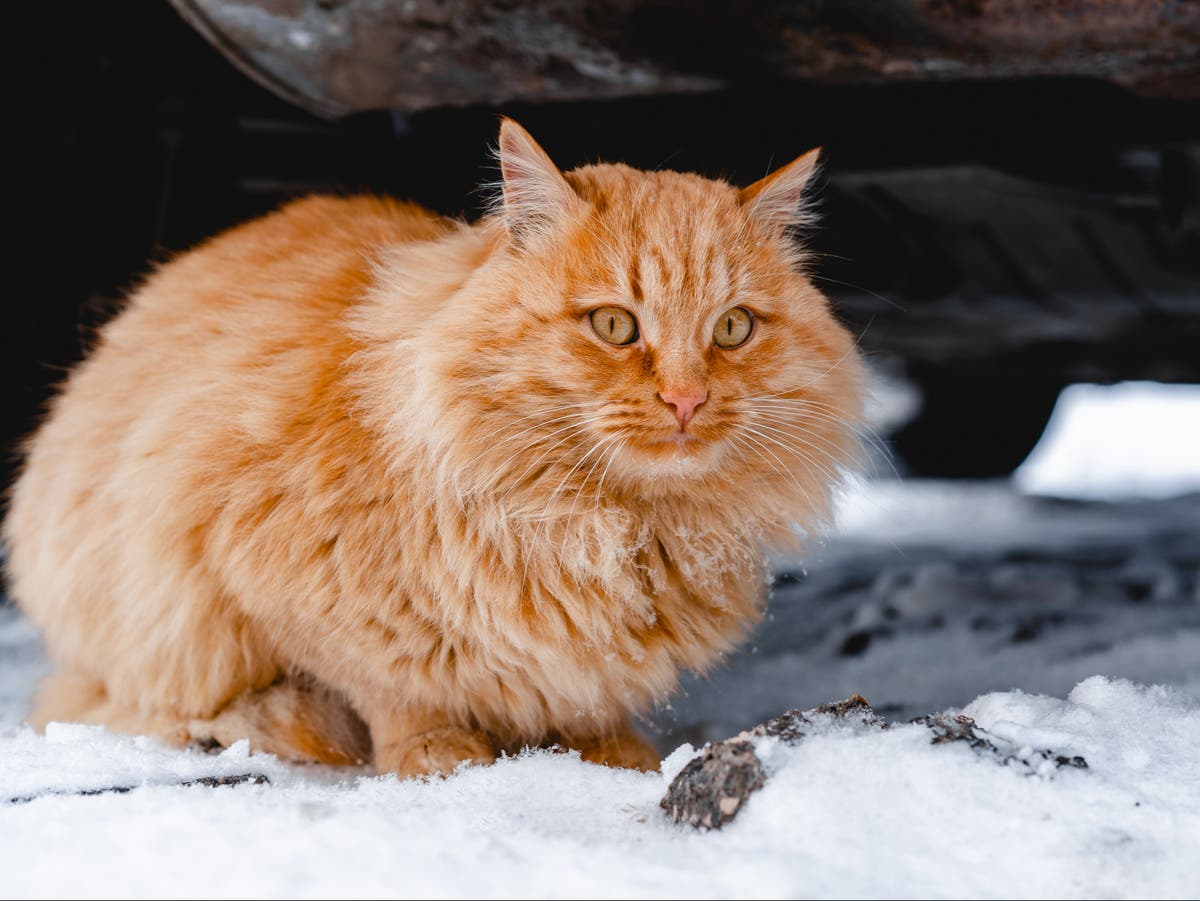The RSPCA has warned householders that antifreeze and salt can be poisonous to pets – as snow and freezing temperatures are forecast to sweep the UK this weekend.
Amber severe weather warnings for ice and snow have been issued for parts of England and Wales amid a cold snap gripping the country.
Most of the Midlands, Wales, and parts of northern England will be covered by an amber warning for snow and ice from 6pm on Saturday until noon on Sunday.
Up to 30-40cm of snow is possible in parts of northern England on Sunday, the Met Office said.
Further south, and especially over Wales, rain could freeze, causing dangerous icy conditions, forecasters said.
UK Health Security Agency cold-weather health alerts for all of England remain in place for vulnerable people.
And the RSPCA issued advice for owners on how to keep their pets unharmed by the tumbling temperatures and the state of the ground.
The charity asks drivers to check their car regularly to ensure it is not leaking water coolant; keep antifreeze in labelled, robust, sealed containers, away from pets; clean up even small spills immediately and ensure animals cannot access the area until it’s clean.
“Pets die every year from accidental poisonings from antifreeze spills and leaks, as well as from leaking water coolant from cars, but most of these deaths are avoidable,” the RSPCA says.
Dogs that have walked in areas gritted with rock salt should have their paws thoroughly washed afterwards or it can act as an irritant or be ingested if the animal licks its paws.
Drivers are also asked to tap their car bonnet and check around the wheels and on top of the tyres before starting up, because cats may shelter there for warmth.
open image in galleryCoats help dogs stay warm (Getty Images)
Cat owners are asked to ensure their pet’s bedding is warm and dry, away from cold draughts.
“In the coldest months, your cat must have access to a warm environment, such as your home or another heated indoor area,” the charity advises.
Elderly or sickly dogs will benefit from a special coat to keep them warm, and both dogs and owners should wear something reflective. A light on a dog’s collar is a safety feature.
Dogs should be kept away from ponds and lakes that are iced over as thin ice may break under a dog’s weight.
“If it’s snowing outside, watch out for your dogs’ paws becoming compacted with snow, which is uncomfortable for them,” the charity says.
Other advice includes insulating the outdoor sleeping areas of rabbits and guinea pigs, keeping enclosures facing away from wind and rain, and moving enclosures into an outhouse, shed or unused garage.
For fishponds with frozen surfaces, place a saucepan of hot water on it to gently melt a hole in the ice with the warmth. Don’t break fishpond ice and never tip boiling water straight onto the pond either, as this can also harm or kill any fish living there.
Check horses’ and ponies’ hooves for abscesses and loose shoes, and legs, for any signs of mud fever.
They should have access to shelter and fresh water, and maybe a waterproof rug.
